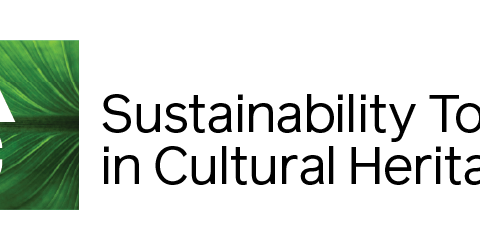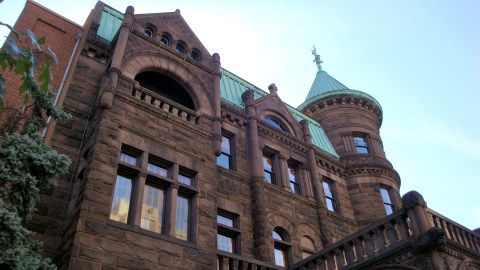We asked Sally Yerkovich, Director of the Institute of Museum Ethics at Seton Hall University and the chair of AAM’s Task Force on the Direct Care of Collections, to write about current conversations in museum ethics and her recent engagements in the U.K. Follow her on Twitter: @museumethics and @userword.
The media pays intense attention to museums and their focus is too often not on the latest exhibition opening but on how museums go about their daily business – how we raise funds (and who we raise them from), how we are governed, how we acquire objects and artworks for our collections (and from whom), how we care for them, etc. Just yesterday I had an e-mail from a friend who said “I read the museum [ethics]-related stories in the Times every week, and there is much to induce head-scratching. What’s going on?” Fossil fuel producing companies supporting exhibitions on climate change? Art stolen by the Nazis at a museum in Oklahoma? Egyptian statues sold by a museum in England?
This is just some of the evidence demonstrating that museums around the world need to be more proactive about ethics. But what are we doing about it? In the U.S. an American Alliance of Museums Task Force is putting the finishing touches on a white paper that will address the use of funds realized from deaccessioned objects for ‘direct care’ of collections. The International Council of Museums is creating background papers to elucidate some of the principles of behavior in the ICOM Code of Ethics for Museums dealing with acquisitions and deaccessioning. In the U.K., the Museums Association just revised their entire code of ethics in an 18-month participatory process that engaged museum professionals in person and online. This forward–thinking effort resulted in a workable, usable guide for people working in museums that is short and to the point. It focuses upon the three essential aspects of museum work – the museum’s ultimate responsibility to the people that it serves, its obligations regarding collections stewardship, and its essential commitment to maintaining integrity so as to demonstrate that museums are worthy of the trust that the public places in them.
These national and international level activities are all well and good but how do they help those of us who are working in museums and who face ethical dilemmas almost daily?
In November just as the U.K. Museums Association was about to adopt its new code of ethics, they invited me to attend their annual meeting in Birmingham, England’s second largest city, to talk about the future of museum ethics. They wanted me to identify ethical challenges that the U.S. faces, help identify issues that might also impact the U.K., and speculate the ethical questions that could bedevil us all well into the future. How do we prepare ourselves?
I spoke about what seemed to me to be the biggest present and future challenges – maintaining our integrity in the face of increased need to raise funds from not always neutral sources; not allowing pressure from outside groups voicing personal opinions to affect professional decisions about exhibition-making; and bringing the public into key aspects of our decision-making in order to rally their support rather than their criticism.
Afterwards, I spoke with museum workers from all over the U.K. about what they view as their challenges and those conversations led me to reflect on more questions. In spite of the fact that our museums work under very different systems of law and governance and that, as a result, we have marked differences in our ethics, we share many of the same challenges. While U.K. museums like the National Museums Liverpool, lead the way in efforts to make museums socially responsive and responsible, some of US museums have much more experience directly engaging the public in their decision-making processes in order to garner public support. AAM’s Museums and Community initiative, for example, led the Detroit Zoo to consult with the public during their decision-making about retiring Winky and Wanda, two of their beloved elephants, who were no longer thriving in the Zoo (in part because of Detroit’s cold winters). The resulting public understanding helped provide the leverage that the Zoo needed to gain approval from the American Zoological Association to retire the elephants to a warmer climate.
In Birmingham, it became clear that museum professionals in both our countries lack the opportunity to come together and talk about ethical challenges without being under the pressure that a real ethical problem generates. When dilemmas are presented as hypotheticals, they provoke thought and can also present entertaining puzzles to talk about. Working on such scenarios together with colleagues expands our thinking and helps create possible resolutions. And, discussing hypothetical issues or ethical dilemmas in the news, gives us the basis for dealing with real ethical problems when they arise. After rolling out their new code of ethics this year, the U.K. plans to begin a series of ethics training programs. Sweden and other countries in Northern Europe have been trying these for a number of years with much success and the Swiss national committee of ICOM recently created a training PowerPoint for their museums.
If you can read French, German, or Italian you might want to look at the PowerPoint and try your hand at a few of the questions they raise. Certainly, they will give you some food for thought and perhaps even help you figure out an answer if you get an e-mail like the one I received yesterday.








